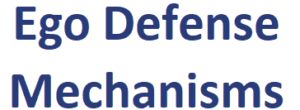Ego Defense Mechanisms
Ego defense mechanisms are a set of behavioral biases that subconsciously safeguard professional investors’ overconfidence. These ego defense mechanisms can and should be counteracted because they can lead to erroneous forecasts and underperformance.
On this page, we discuss the main ego defense mechanisms and how analysts can counteract and mitigate them. The ego defense mechanisms we discuss are self-attribution bias and hindsight bias.
Self-attribution bias
The first ego defense mechanism we discuss is self-attribution bias. Analysts take credit for their successes and blame others or external factors for failures. It is an ego defense mechanism because analysts avoid the cognitive dissonance associated with having to admit making a mistake. By aligning past successes with personal talent, the analyst adds to the feeling of complete knowledge.
Hindsight bias
The second mechanism is hindsight bias. In effect, the analyst selectively recalls details of the forecast or reshapes it in such a way that it fits the outcome. In this way, the forecast, even though it technically was off target, serves to fuel the analyst’s overconfidence. Hindsight bias then leads to future failures. By making their prior forecasts fit outcomes, analysts fail to properly recalibrate their models.
Mitigating overconfidence
There are several actions analysts can take to minimize overconfidence. One thing they can do is self-calibrate. Self-calibration is the process of remembering their previous forecasts more accurately in relation to how close the forecast was to the actual outcome. This can be achieved by getting prompt and immediate feedback through self evaluations, colleagues, and superiors. Analysts should strive to formulate unambiguous and detailed forecasts that can be evaluated ex-post.
To help counteract the effects of overconfidence, analysts should seek at least one counterargument, supported by evidence, for why their forecast may not be accurate.
Summary
We discussed how an ego defense mechanism can lead to overconfidence among analysts. Self-calibration by keeping track and evaluating the accuracy of the forecasts can help mitigate the impact of overconfidence.

